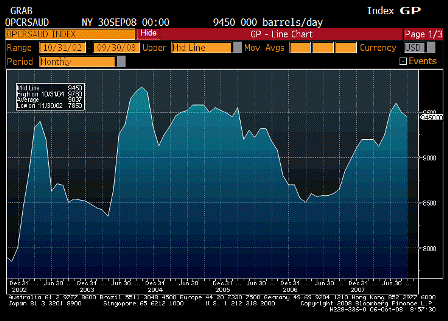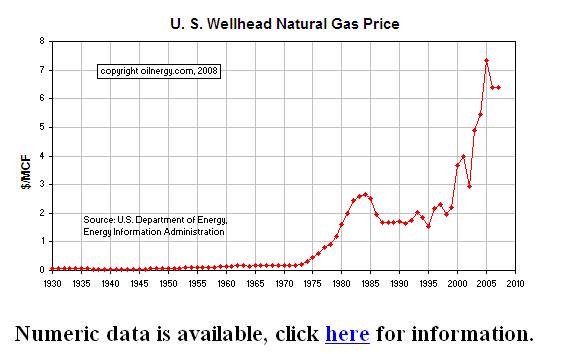It’s too early to say for sure the Mike Master’s sell off has run its course.
I looked at the announced OPEC supply cut as evidence they think it has.
Net supply issues remain and at least so far demand destruction has only meant a slowing growth of consumption.
Crude Oil Rises on Surge in Global Equities, Possible Fed Cut
By Alexander Kwiatkowski
Supply Declines
Global crude-oil output is falling faster than expected, leaving producers struggling to meet demand without extra investment, the Financial Times said, citing a draft of an International Energy Agency report.
Annual production is set to drop by 9.1 percent in the absence of additional investment, according to the draft of the agency’s World Energy Outlook obtained by the newspaper, the FT reported. Even with investment, output will slide by 6.4 percent a year, it said.
The shortfall will become more acute as prices fall and investment decisions are delayed, the newspaper said. The IEA forecasts that the rising consumption of China, India and other developing nations requires investments of $360 billion a year until 2030, it said.
OPEC Considers Meeting
The Organization of Petroleum Exporting Countries’ decision last week to trim production for the first time in almost two years failed to stop prices falling yesterday.
“If circumstances dictate we have another meeting, of course we will meet,” OPEC Secretary-General Abdalla el-Badri said at the Oil & Money conference in London. He said he expects a market response to last week’s output cut after about a week.
Shokri Ghanem, chairman of Libya’s National Oil Corp., echoed el-Badri’s comments, saying he’s watching the market to see whether it’s deteriorating or stabilizing.
[top]



